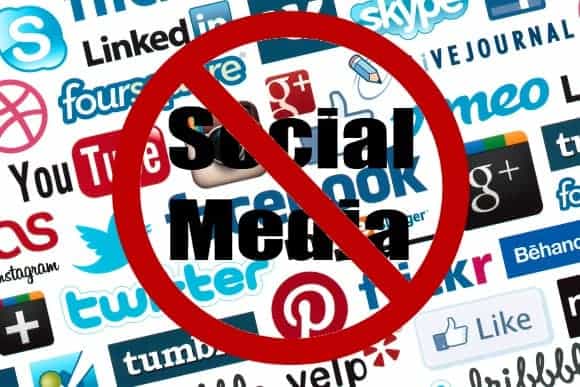

Podcast
I firmly believe that schools should block sites like YouTube, Facebook, and Instagram on their computers. These platforms are major distractions, and we need to create an environment conducive to learning.
The question of whether schools should block sites like YouTube, Facebook, and Instagram on their computers is a contentious one. While it is true that these platforms can be major distractions, it is important to consider the potential benefits they offer in an educational setting. A balanced approach that incorporates both the advantages and disadvantages of these platforms is necessary.
Blocking these websites may seem like a straightforward solution to minimize distractions and create a focused learning environment. However, it is essential to recognize that these platforms also have educational value. YouTube, for instance, hosts a vast array of educational content, including tutorials, lectures, and documentaries. Many teachers utilize YouTube as a valuable resource to supplement their lessons and engage students in a more interactive way. Blocking YouTube would deprive students of these educational opportunities.
Furthermore, social media platforms like Facebook and Instagram can also have educational benefits. They can be used as tools to foster collaboration, communication, and creativity among students. For instance, teachers can create private groups on Facebook to facilitate discussions and share resources. Instagram can be used by art teachers to showcase students' work and provide inspiration. By blocking these platforms, schools may hinder the development of important digital literacy skills that are increasingly necessary in today's society.
However, it is undeniable that these platforms can be significant distractions. Students may be tempted to spend excessive amounts of time on social media, leading to a decline in productivity and focus. This is where a balanced approach is crucial. Instead of outright blocking these websites, schools can implement strategies to manage and regulate their use. For example, they can set specific timeframes during which access to these platforms is allowed, such as during breaks or designated free periods. This way, students can enjoy the benefits of these platforms while still maintaining a focused learning environment.
Additionally, schools can educate students about responsible internet usage and digital citizenship. By teaching students how to navigate these platforms responsibly, they can develop the necessary skills to avoid excessive distractions and use these platforms for educational purposes. This approach not only promotes self-discipline but also prepares students for the digital world they will encounter outside of school.
In conclusion, while it is understandable that blocking websites like YouTube, Facebook, and Instagram may seem like a solution to minimize distractions in schools, it is important to consider the educational value these platforms offer. A balanced approach that incorporates strategies to manage and regulate their use, along with promoting responsible internet usage, is more conducive to creating an environment that supports both learning and digital literacy skills.
Related Posts
© 2025 Invastor. All Rights Reserved

User Comments
Stella Ayala
a year ago
I understand that concern, but isn't teaching them how to navigate these platforms safely and responsibly a better approach? Blocking won't prevent them from encountering these issues outside of school.
John Alemayehu
a year ago
I'm concerned about cyberbullying and inappropriate content. Blocking these platforms would definitely help ensure students' safety online.
Ashea Alonso
a year ago
That's a fair point, but I think school hours should be about focused learning. They can learn self-discipline elsewhere, but during class time, we should minimize unnecessary distractions.
John Alemayehu
a year ago
I see where you're coming from, but what about teaching students self-discipline? In the real world, they'll encounter these distractions, and it's essential they learn to manage them responsibly.
Smith Coleman
a year ago
Sure, there might be some educational content on YouTube, but that's outweighed by the endless cat videos and other distractions. And as for Facebook and Instagram, there are other ways to collaborate on projects without the constant temptation of scrolling through posts.
Stella Ayala
a year ago
But aren't there educational benefits to these platforms? YouTube has a ton of educational content, and Facebook and Instagram can be used for school clubs and projects.
Ashea Alonso
a year ago
I couldn't agree more. Just think about how much time students waste scrolling through these sites during class. Blocking them would help keep students focused on their studies.